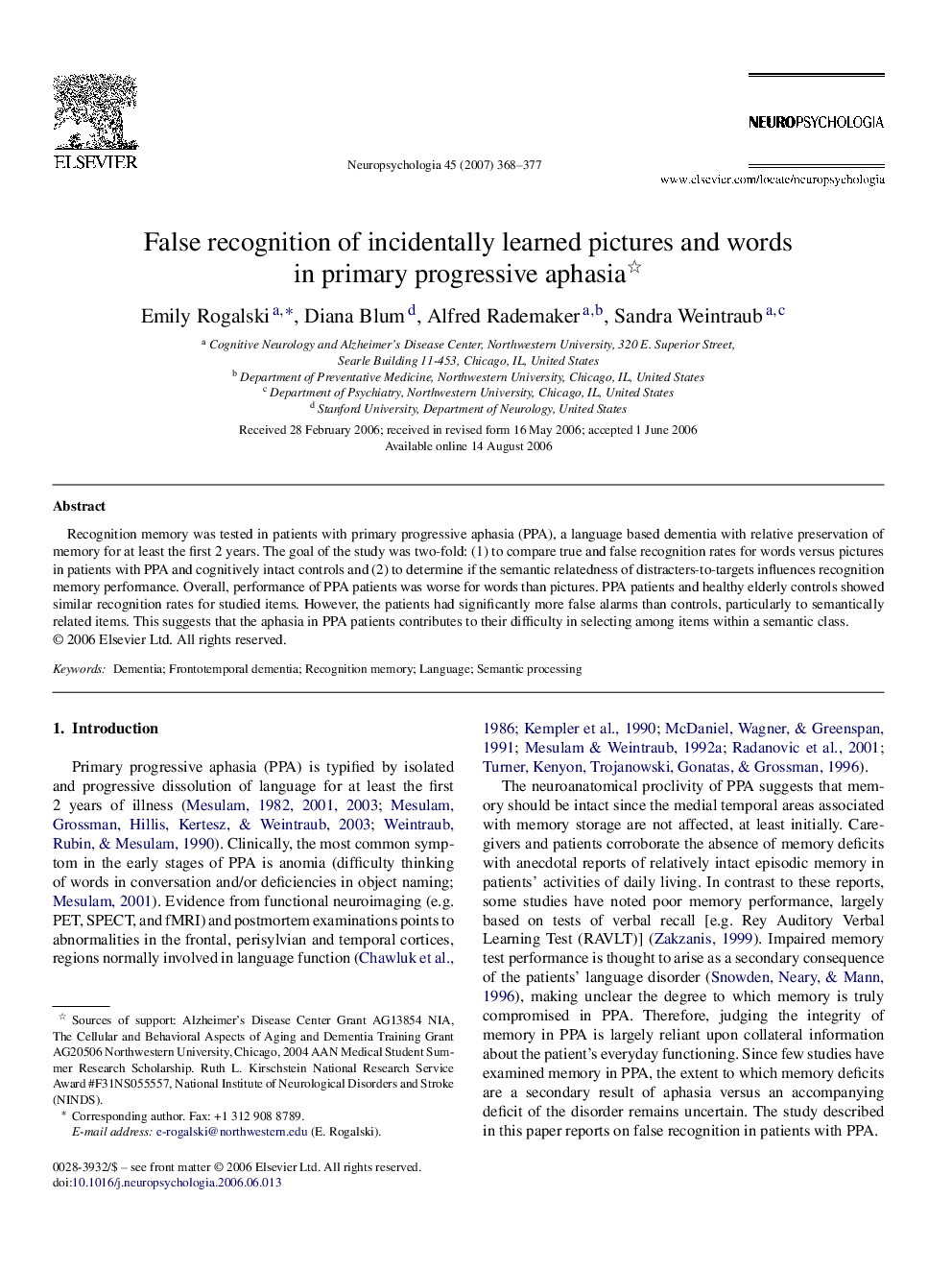| Article ID | Journal | Published Year | Pages | File Type |
|---|---|---|---|---|
| 10467072 | Neuropsychologia | 2007 | 10 Pages |
Abstract
Recognition memory was tested in patients with primary progressive aphasia (PPA), a language based dementia with relative preservation of memory for at least the first 2 years. The goal of the study was two-fold: (1) to compare true and false recognition rates for words versus pictures in patients with PPA and cognitively intact controls and (2) to determine if the semantic relatedness of distracters-to-targets influences recognition memory performance. Overall, performance of PPA patients was worse for words than pictures. PPA patients and healthy elderly controls showed similar recognition rates for studied items. However, the patients had significantly more false alarms than controls, particularly to semantically related items. This suggests that the aphasia in PPA patients contributes to their difficulty in selecting among items within a semantic class.
Related Topics
Life Sciences
Neuroscience
Behavioral Neuroscience
Authors
Emily Rogalski, Diana Blum, Alfred Rademaker, Sandra Weintraub,
